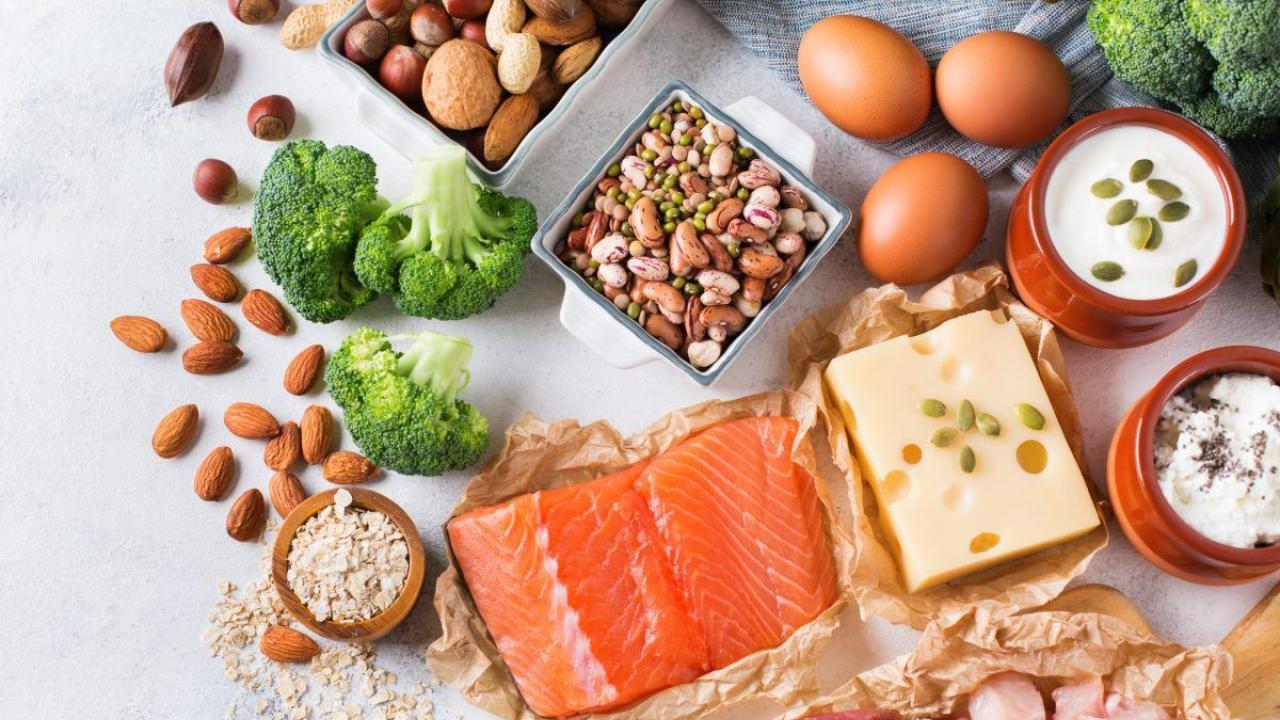
Adequate dietary protein keeps you healthy and strong
We hear about the importance of consuming enough protein. Protein is essential for growth and development, specifically in children, teens, and pregnant women, as it’s a building block for bones, muscles, cartilage, skin, and blood. However, protein is necessary for everyone to maintain processes such as tissue repair, digestion, and hormone regulation. If an individual doesn’t consume enough protein they will experience weakness and fatigue and will likely lose muscle mass. Additionally, lack of protein may result in anemia which is when the body has a low number of red blood cells, necessary for carrying oxygen throughout the body.
The Recommended Dietary Allowance (RDA) for protein is 0.8 grams per kilogram of body weight. This equates to 56 grams per day for the average sedentary man and 46 grams per day for the average sedentary woman. If you are sick, healing, growing, or very active, the requirement is slightly higher. To help with comparison 1 oz of chicken contains 8 grams, and in 1 oz of salmon, there are 6 grams of protein. One cup of dairy contains roughly 9 grams of protein. It is possible to eat an excess in protein, but the excess will just be stored as fat.
Amino acids, the components of all proteins, are categorized as essential, or nonessential. The essential amino acids are the ones that the body cannot produce and must come from foods. There are 9 essential amino acids including histidine, leucine, and lysine to name a few. Consuming a diet containing all nine of the essential amino acids is ideal. The body can manufacture other amino acids as needed, assuming adequate total protein intake. Proteins that contain all nine of the essential amino acids are known as complete proteins. Some examples of complete proteins are animal products such as meat, poultry, fish, eggs, and dairy. Proteins that do not contain all nine essential amino acids are known as incomplete proteins. Some examples of those are beans, certain nuts, and tofu – most of the plant proteins. If you are vegetarian or vegan it is still possible to consume complete proteins without eating animal products. When you combine a variety of incomplete proteins you receive all 9 essential amino acids because one food makes up where another is lacking. It can take more thought to ensure adequate protein intake as a vegan/vegetarian, but it is very doable. Examples of good combinations include peanut butter on whole-wheat bread and brown rice with black beans. When combining incomplete proteins a grain, cereal, or nut can be eaten with lentils, and beans. There are also some protein enhanced foods available in the market today, such as RightRice which is made from a combination of vegetables and it is higher in protein and fiber. If you rely on plant proteins, you likely need a vitamin B-12 supplement, because B-12 is found only in plant foods. Most people do not need to supplement protein; it is beneficial for protein to come from food sources and be included with each meal.
Protein is an essential part of the diet. Not only will it aid you in preserving overall health, it is crucial for ensuring muscle mass and strength as you grow older and thus help prevent falls.